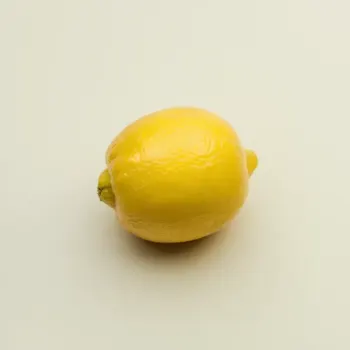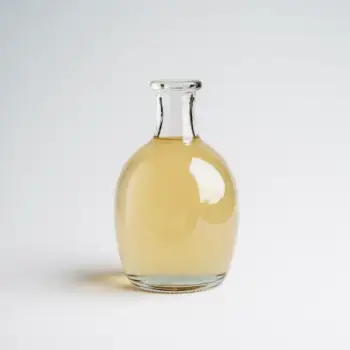Lemon juice, with its fresh citrus flavor, is ideal for brightening dishes and tenderizing meats, while white vinegar, being sharper and more acidic, excels in pickling, preservation, and robust dressings. Both can be used in marinades and baking, with differences in flavor and acidity.

Extracted from the pulp of fresh lemons, lemon juice is a citrusy liquid bursting with bright, tangy flavor. It's a natural tenderizer and is often used to enhance the flavor of various dishes.

White vinegar, made by fermenting distilled alcohol, is a clear and highly acidic liquid. Its sharp flavor makes it a staple for pickling, cleaning, and use in marinades and dressings.
Lemon juice is known for its fresh, citrusy flavor, ideal for brightening up dishes, while white vinegar has a sharp, more pungent taste, making it better for pickling and preservation. Lemon juice has a lower acidity level compared to white vinegar's higher acetic acid content. Additionally, lemon juice contains vitamin C and natural sugars, which vinegar lacks.

Your ultimate Recipe Box, Meal Planner, and Cooking Class all in one
Great for fruit or green salads, lemon juice adds a fresh zing that complements delicate flavors. It's perfect for a light, summery vinaigrette or a Mediterranean-inspired dressing. Ideal for more robust salads, white vinegar pairs well with hearty vegetables and can withstand stronger seasoning. It's often used in creamy dressings or for a quick pickle in slaws.
Lemon juice not only imparts flavor but also tenderizes meat thanks to its citric acid. It's perfect for chicken, fish, or vegetable marinades where a touch of zest is desired. The sharpness of white vinegar makes it suitable for heavier meats like pork or beef. It can help to break down tough fibers and is often used in combination with herbs and spices.
Used to add a bright note to baked goods like lemon bars or pound cake, lemon juice can also act as a leavening agent when combined with baking soda. White vinegar is often used in baking to react with baking soda for leavening. It's a key ingredient in some pie crusts and can make cakes more tender.
While lemon juice can sometimes be substituted for white vinegar, it's important to consider the final flavor profile of the dish. The substitution may work in marinades and dressings, but lemon juice will add a citrus note that white vinegar does not have. Conversely, using white vinegar instead of lemon juice might overpower a dish intended to have subtle, fresh flavors.
Lemon juice is a good source of vitamin C, while white vinegar has no significant vitamins or minerals.
| Nutrient | Lemon Juice ( per Tablespoon ) | White Vinegar ( per Tablespoon ) |
|---|---|---|
| Fat | 0g | 0g |
| Sodium | 0mg | 0mg |
| Protein | 0.1g | 0g |
| Calories | 4 | 3 |
| Vitamin C | 6.4mg | 0mg |
| Carbohydrates | 1.3g | 0g |
Lemon juice is not as strong as white vinegar but can be used for light cleaning and deodorizing. It's not recommended for heavy-duty cleaning tasks.
White vinegar is typically preferred for pickling due to its higher acidity, which is necessary for preserving the pickled items safely.
Yes, lemon juice can curdle milk similarly to white vinegar, as both are acids that cause the milk proteins to coagulate.
The choice depends on personal taste and the type of dish. Lemon juice is great for adding a fresh, citrus flavor to delicate proteins, while white vinegar is better for heavier meats and more robust flavors.
While possible, it may alter the flavor. If a cake recipe calls for white vinegar, it's likely for its neutral taste and chemical properties, so substituting lemon juice could give a slight lemony taste to the cake.